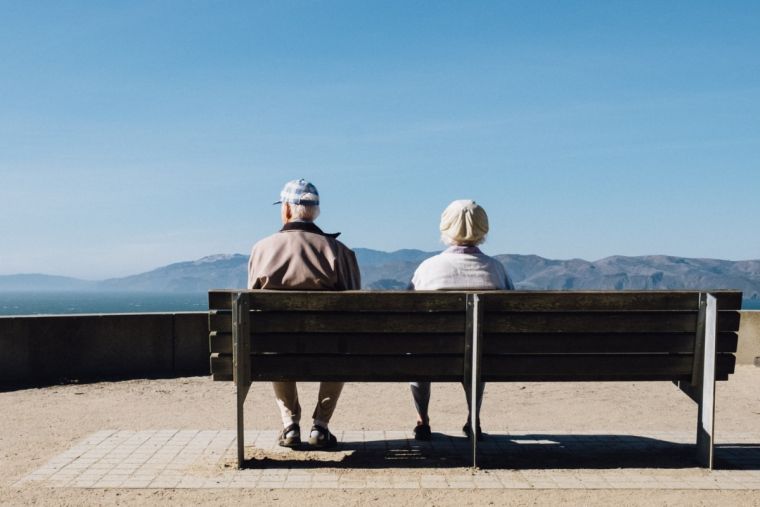Religious leaders called to support dementia and Alzheimer's sufferers

Religious leaders are being challenged to speak up in support of people suffering from dementia and Alzheimer's, as well as their caregivers.
A medical ethics symposium held at the Vatican this week heard of the stigma being experienced by sufferers of the conditions, even within religious communities.
Paola Barbarino, Chief Executive of Alzheimer's Disease International, said she knew of cases where people had sought a divorce after their spouse had been diagnosed with either dementia or Alzheimer's, but also people who had been "shunned" by their religious communities following a diagnosis.
People were, she said, "disembodying themselves from their responsibility", adding that religious leaders need "to emphasise, in their communities, love and support".
"We need religious leaders around the globe to say: this is important," she said.
"We have Muslim, Jewish and Christian experts here at this symposium. It is our responsibility to go back and tell our religious leaders that this is a big deal. We can't let families be isolated anymore."
The two-day symposium, which concluded on Thursday, was organised jointly by the Pontifical Academy for Life and Qatar's World Innovation Summit for Health.
Professor Marco Trabucchi, from the Pontifical Academy for Life, also touched on the problem of stigma. He said it was being partly fuelled by family doctors who are "not really convinced that dementia is a real problem", but rather think that it is a normal part of the ageing process.
"The stigma needs to be overcome but I am not optimistic in the short term," he said.
Prof Trabucchi identified other challenges emerging in care for elderly sufferers of Alzheimer's and dementia. In addition to an ageing population, he said that new challenges were being posed because family and religion are "in crisis", meaning that many of the traditional structures of care in the community are disappearing.
Wider societal conflicts are also impacting on attitudes towards care for the weak or elderly, he continued.
"In Italy, social hatred is particularly severe - it is a critical situation," he said.
"Hatred seems to have become the prevailing element in relationships, not only at the political level but individual relationships between people.
"If a society is marked by hatred, with little attention for the frail, and intolerant, then caregiving becomes a witness, an example of civilisation. A loving attitude towards these people is a witness of civilisation."
Professor Diego De Leo, Editor Emeritus of 'Crisis: the Journal of Crisis Intervention and Suicide Prevention,' said that loving relationships were important to preventing suicide among the elderly.
He said that suicidal people often feel lonely and disconnected, even where they have friends or family, and that addressing the loneliness could be a more effective treatment for suicidal feelings than other traditional interventions.
"The suicidal people are very lonely and not receiving the support, the moral support, the spiritual support from family members and friends, much more than any form of practical support [we could give]," he said.
"We don't have to let old people feel alone. Sometimes as physicians we are used to asking people: do you live alone? Actually we should ask: do you feel alone? Because this makes the difference. It's a different level of understanding and a different level of involvement with patients."
Addressing care for the elderly more generally, Dr Ferdinando Cancelli, also a member of the Pontifical Academy for Life and an expert in palliative care, spoke of the need to fight the "nudging of society" towards the idea that "old people are useless".
He also encouraged medical professionals to "create opportunities" to talk about spirituality with their patients to ensure that those with a faith are properly supported within the care environment.
"Spirituality is very important for our patients," he said.
"Some do not even have the courage to talk about God. They would like to talk about God or spirituality but in our society, if you talk about this you can be perceived as someone who should be discarded."
He went on to say that spiritual care was necessary to preserve and safeguard mental health in the elderly.
"Safeguarding the mental health of elderly patients and palliative care is what we can do to distance ourselves from the logic of shortening life," he added.
Bishop Noël Simard, Bishop of Valleyfield in Quebec, Canada, made a similar appeal, saying that palliative care needed to be based on a holistic concept of the person and a "deep integration of the body, mind and spirit".
"The soul reality of a human person is not diminished by the deterioration of health conditions," he said.
"There is a dignity that lasts and must always be looked for [in a person] at all stages and walks of life."
Such an understanding, he said, could sometimes even positively impact the way in which a patient responds to treatment.
"It's not only the medicines that help. It's sometimes more the human compassion that helps," he said.











